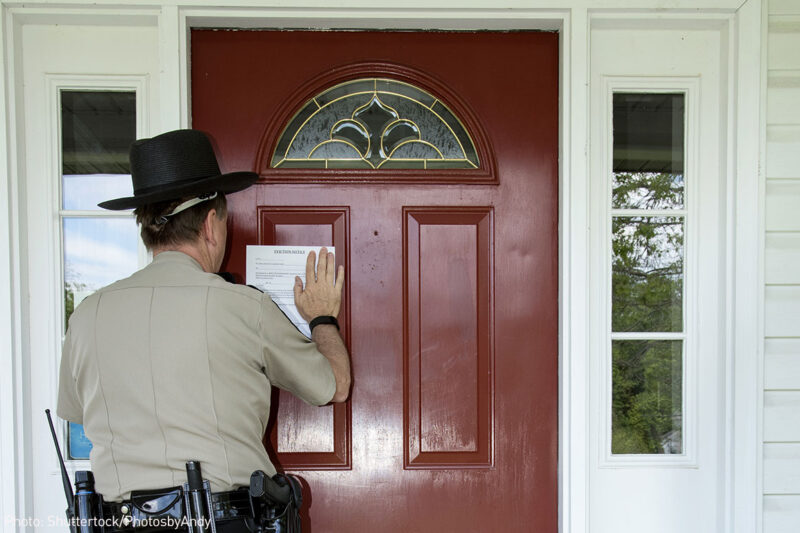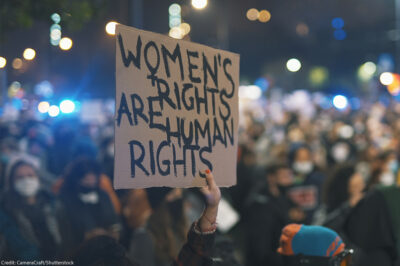In a Town Near You, People Are Being Evicted From Their Homes Because They Called the Police for Help


In cities and towns across the country, little-known local laws penalize calls to the police and can get people kicked out of their homes. These laws create a perverted point system where every 911 call or report of criminal activity at a rental property counts as a strike against renters and their landlords. And it doesn’t matter whether people called the police for help or that they were the victim of the crime.
These laws go by different names: nuisance ordinances, crime-free ordinances, disorderly behavior ordinances. But they all do one thing: They tell landlords that unless they punish tenants for calling 911 or when a crime occurs in their homes, they will face steep fines, loss of rental permits, or property closure. Not surprisingly, landlords typically “abate” the “nuisance” by evicting the tenant and everyone in the home without any consideration of the circumstances that led to the call.
Here are a few examples:
- In Norristown, Pennsylvania, a tenant’s boyfriend physically assaulted her, and she called 911. The police arrested her boyfriend but told her that if she made more calls to the police, she would be evicted. After this, the tenant was terrified to call the police despite her boyfriend’s escalating violence. When he came back again and stabbed her in the neck, her neighbors called the police and she was airlifted to the hospital. The city pressured her landlord to evict, and days later, she received an eviction notice.
- In Binghamton, New York, a tenant was a victim of a home invasion and burglary, and his neighbor called the police. The tenant told the police that he didn’t know his assailants or why he was targeted. But the city cited the landlord, and the landlord assured city officials that all tenants in the building had been or would be evicted.
- In Berlin, New Hampshire, police responded to the home of a tenant who had attempted suicide and brought her to the hospital. Hospital staff later informed the police that the tenant had become disorderly, and the police placed her in protective custody. Despite the apparent mental disability, the officers issued the tenant a citation under the local nuisance ordinance.
- In Blakely, Pennsylvania, a neighbor called the police and accused a tenant of leaving her child unattended on the porch of the home. The Department of Children and Youth Services deemed the allegation unfounded, but the call to the police was still counted as a strike against the mother under the local ordinance.
- In Lancaster, California, according to the Department of Justice, the chronic nuisance ordinance was used in a racially discriminatory manner by the city to incentivize landlords to evict African-American tenants.
The enforcement of these laws against domestic violence survivors, crime victims, people living with disabilities, and people of color violates our sense of basic fairness and decency; it’s also incredibly harmful, unproductive, and often unlawful.
That’s why over 29 United States Senators today sent a letter to Julian Castro, secretary of the Department of Housing and Urban Development, urging his department to issue written guidance to cities and landlords about these ordinances in order to ensure that everyone has access to emergency services without fear of retaliation.
The senators noted that these local laws have a disproportionate impact on victims of domestic violence by exacerbating housing insecurities that are unique to survivors — because securing and maintaining adequate housing is often challenging — and further increasing victims’ likelihood of becoming homeless. Additionally, while some nuisance ordinances are supposed to address crime in a community, they often undermine public safety by deterring crime victims and their neighbors from calling the police, emboldening the perpetrators.
The senators’ letter to HUD also asserted that such ordinances may violate federal laws, and it encouraged the department to issue guidance to municipalities. Such guidance should explain the federal protections — the Fair Housing Act, the Americans with Disabilities Act, and the Violence Against Women Act — that apply when these ordinances are enforced against domestic violence survivors, people with disabilities, and communities of color.
No one should have to choose between being safe or being homeless. Yet that’s exactly what nuisance, crime-free, or disorderly behavior laws do when they penalize tenants who make 911 calls or are crime victims. HUD has already taken some important steps to address the discriminatory effects of these ordinances.
We’re glad that members of the U.S. Senate are urging them to keep up the good work — and to do more.



